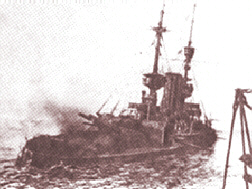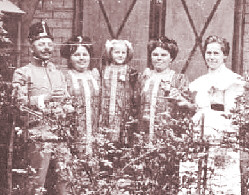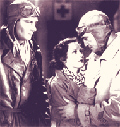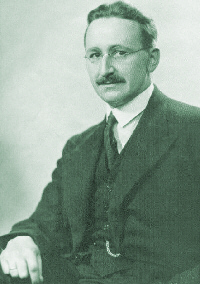
February 2004 |
Access Archives |
TRENCH REPORT: As promised, the TRIP-WIRE will be adding new features in 2004. This month we premiere our first Email Interview, electronic dialogues with authors of important works on the Great War. Our first subject is historian and novelist Thomas Fleming . . . Jody Foster has just completed filming in France with Aubrey Tautou of A Very Long Engagement. The film is based on Sabastien Japriscot's 1994 novel about a crippled French woman's search for her fiancee, officially listed as killed in the line of duty in Picardy on the Western Front . . . Correspondent Walt Kudlick attended the seminar Zealandia in the Great War held last November 7-10 in Wellington, New Zealand. It was tremendously well-done. Contact Walt if you would like to receive abstracts of all the presentations and biographies of the speakers (pdf file) or the full program (Word document). (email) . . . The Frank and Tom Western Front Express is rolling again. Experienced battlefield guides Frank Jordan and Tom Gudmestad have a two week excursion planned for July. Click here then Group Tours for information.  Apparently Not Irresistible! |
||||||||||||||||||||||
New at the Websites of the Great War Society and Our FriendsClick on Title to Access |
|
At Great War Society's Home Page At Members Contributions At the Doughboy Center At Legends and Traditions At WFA-USA |

Released in 1932, The Lost Squadron, is one of the classic aviation films dealing with America's World War I fliers and is also a great behind-the-scenes look at how aviation movies were made in the early 1930's. Captain Gibby Gibson (Richard Dix), Lt. Red (Joel McCrea) and their mechanic, Fritz (Hugh Herbert) are veterans who are unable to adjust to a peacetime existence and cannot find regular employment. Traveling to California as hobos, they meet their old comrade Lt. 'Woody' Curwood (Robert Armstrong) at a premiere at Grauman's Chinese Theater. He works as a stunt flier. "Fifty bucks a flight and it's easy money, all you have to do is a couple of outside loops, tear off a wing and land upside down," he says and gets his old friends hired on Arnold von Furst's (Erich von Stroheim) new picture. Two problems arise, Woody's heavy drinking affects his flying, and the sadistic von Furst is married to Folette Marsh (Mary Astor), once Gibby's lover. Von Furst puts acid on the control wires of Gibson's plane. But Woody takes the ship up and crashes to his death. Once the truth Red and Gibby learn the truth behind the 'accident' Von Furst is a dead man.
|

WWI Cartoon of the Month
Old Bill helps the Red Cross
 |
This Month's Special Feature Notable Men & Women of the War |
|
| |
|

 |
With Author
Thomas Fleming
On January 10, 2004 the Eastbay Chapter of the Great War Society gathered to watch videos of Mr. Fleming's speech before the Cato Institute on his exciting and controversial new First World War volume The Illusion of Victory and a subsequent interview on CSPAN's BookNotes program. Prior to the meeting, he had agreed to respond to our questions about his book and remarks via email. The entire record of this interchange can be viewed by clicking here.

The first month of January 2004 took a tremendous toll on the shrinking ranks of WWI veterans and a noted author.
Alfred Pugh, the last known combat-wounded veteran of World War I, has died. He was 108, just 10 days short of his 109th birthday. Pugh, who often told visitors the key to a long life is "keep breathing," joined the Army in 1917 and fought in France during World War I with the 77th Infantry Division. In 1918, he was wounded during the Meuse-Argonne offensive. During the battle Pugh inhaled mustard gas in the Argonne forest. It left him unconscious, and with chronic laryngitis. Born Jan. 17, 1895, in Everett, Mass., Pugh played the organ into his 100s and was an avid football and baseball fan.
Captain Henry St John Fancourt aged 103, was a midshipman in the Battle of Jutland; he was later responsible for launching the hunt for the Bismarck, having played a vital part in reviving the Fleet Air Arm between the wars.
Myer "Jerry" Lewis, who served under the Canadian flag in WWI and the U.S. stars and stripes in WWII, died recently at 104 in a retirement center in Los Gatos, California, of causes associated with aging. As a teenager Lewis enlisted with the Motor Transport Unit of the Canadian Army Service Corps, and was stationed in England. At war's end, he returned to Ottawa, then immigrated to the United States in 1924. He became a citizen in 1932. Although Lewis was 43 as the U.S. built up forces for WWII, he enlisted in the Navy with Fleet Air Wing 7. He returned to England, serving in the Dunkeswell area in antisubmarine patrols. Lewis remained in the Navy Reserves and retired as Aviation Storekeeper 1st Class in 1965.
Pulitzer Prize-winning author John Toland passed away January 4th in Danbury, Connecticut. He was 91 years old. He is best remembered for his WWI history "The Last 100 Days." He won the Pulitzer Prize for his 1976 book "The Rising Sun -- The Decline and Fall of the Japanese Empire, 1936-1946." Toland was an Honorary Vice President of the Western Front Association.

Member Donna Cunningham photographed this flag at a WWI Monument in Texas. Can anyone explain its use or symbolism? email

Everyone has heard of the famous mutiny in 1905 aboard the Russian battleship Potemkin (or, more properly, Kniaz Potemkin Tavricheskii). Less well known is the fact that, after the ship returned to the Russian navy, she was renamed Panteleimon (after an early Christian saint) and served throughout the First World War in the Black Sea Fleet. During the war she earned the unusual distinction of being one of the few predreadnought battleships ever to score a hit on a dreadnought in battle. On 10 May 1915, while the Russian fleet was bombarding the Turkish fortifications at the Bosphorus, the Panteleimon hit the German battlecruiser Goeben with two 12-inch shells. This was enough to convince the battlecruiser to break off the action.
GWS Member Steve McLaughlin has written a comprehensive history, Russian and Soviet Battleships, which the Naval Institute Press has published as a beautiful showpiece volume. Click here to order.

Not Greta Garbo!
The Real Mata Hari
GREAT WAR 2004 EVENT CALENDAR | |
|
Spring Meeting March 12-14 Bay Street Armoury, Victoria BC (link) | |
|
Spring Meeting April 3 War Memorial, Baltimore, MD (link) | |
|
National Seminar The Near East and the First World War Liberty Memorial, Kansas City, MO April 23-25, 2004 (full brochure) | |
|
State University of NY, Plattsburgh, NY August 6-8, 2004 (program) | |
|
Marriott Hotel, Springfield MA October 23, 2004 (link) | |
|
Email Response |
|

Rasputin
Now the dark forces are destroying Russia's last stronghold - the church. A rascal, a khlyst, a dirty illiterate peasant is playing with our churchmen. What abyss are they taking us into? My God! I want to sacrifice myself and kill this vile creature - Rasputin.
Vladimir Purishkevich before the Duma

Polish Officer & Family
| The following are hereby thanked for their contributions to this issue of the Trip Wire: Tony Langley, Andy Melomet, Tom Jones, Christina Holstein, Steve McLaughlin, Frank Jordan, Len Shurtleff and the WFA Field Report and Donna Cunningham. Until next month, your editor, Mike Hanlon. |
Membership Information  Click on Icon |
SUBSCRIBE TO THE TRIP-WIRE (Or Send it to a friend.) (Or send us a comment on the TRIP-WIRE) CLICK HERE TO CONTACT US VIA EMAIL |
For further information on the events of 1914-1918
visit the Directory Page of |

